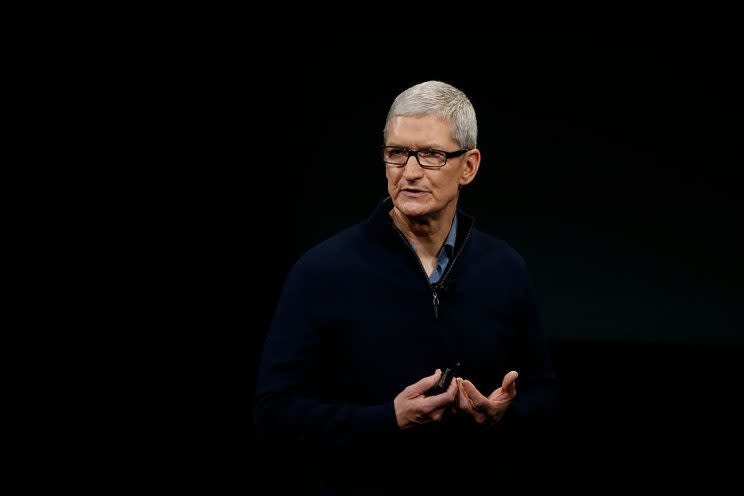Why Apple would need to use ex-NSA workers to stop leaks

Apple (AAPL) is tired of leaks. And according to a report by The Outline’s William Turton, the company is employing individuals with experience through the likes of the N.S.A., F.B.I. and the U.S. military to stop its confidential information from being tomorrow’s big headline.
But in the irony to end all ironies, the information that Apple is trying plug its leaks comes from a leaked recording of an internal meeting about how to prevent leaks. So it’s a safe bet that Apple is quite unhappy right now.
The report not only touches on who is working with the tech giant, but also how successful its Global Security team has been in reducing leaks as of late.
Most interesting is the fact that Apple has cut leaks at its production facilities overseas so much that the main sources of information leaving the company are employees at its Cupertino, California headquarters.
We reached out to Apple and did not receive a response before publication.
Taking control
Naturally, Apple isn’t the only company dealing with internal leaks. So how do they keep proprietary information from walking out the front door? According to Gartner Vice President Avivah Litan, organizations need to take both technical and non-technical actions.
Non-technical controls include security awareness, which comes down to employees being alert to changes in their coworkers’ behaviors; and workforce management.
Technical controls, on the other hand, involve things like behavior analytics.
“It sounds really creepy, but basically you profile everything a user does, you put them in peer groups, you profile the peer groups, you profile other entries like desktops and databases and then you look at transactions relative to the profiles,” Litan explained.
The leakers who leak
Why would someone risk their livelihood to leak information about their employer’s future products? In countries where Apple manufacturers its products, the main reason is cash, Litan explained.
Leakers at Apple’s campuses, meanwhile, could be trying to retaliate against the company for a poor performance review.
But as Litan tells it, there isn’t just one kind of leaker. In fact, there are several including “pawns,” “goofs,” “collaborators” and “lone wolfs.” Pawns are employees who can be tricked into leaking information via phishing attacks or “honey pot” schemes, while goofs leak information through simple mix-ups without any ill intent.
Collaborators are individuals who work with other parties to steal or leak proprietary information, while lone wolfs are people who act on their own to leak company data.
What’s so bad about a little leaking?
So why is Apple so hung up on making sure its future products aren’t leaked to the press? Because, the company says, it hurts its bottom line.
That’s not exactly off base, either. The company makes the bulk of its cash off of iPhone sales. And while consumers might purchase the latest handset when it first launches, sales slowly trickle off throughout the year as more and more information about the next iPhone release leaks.
If Apple can keep a tighter lid on the flow of information about its next products, it might be able to sell more current-generation phones.
On the flip side, though, consumers should have a right to know that what they’re spending their hard-earned cash on is exactly the product they want. If they want to get a next-generation iPhone, they should be able to do jut that.
But if they hear that a newer more advanced version is coming next year, then they should have the ability to decide if they’ll wait for that handset to hit the market.
It’s also worth noting that Apple isn’t alone in its quest for product secrecy. Every major consumer manufacturer from video games to cars and trucks tries to keep their products under wraps for as long as possible. Apple, however, as one of the world’s richest companies, simply gets more attention.
It will be interesting to see if Apple can truly clamp down on leaks and turn its press conferences into the kind of incredibly surprising events they used to be. But chances are there will always be leakers ready and willing to share the information they have with the press regardless of their reasons.
More from Dan:
Nintendo’s ‘Arms’ is a whimsical fighter with wonderful multiplayer
Microsoft exec defends introducing laptop despite declining PC market
Microsoft’s new Surface Pro is a powerful machine with a slight drawback
Microsoft’s new Xbox One X is a beast, but faces an uphill battle
Email Daniel at dhowley@yahoo-inc.com; follow him on Twitter at @DanielHowley.


